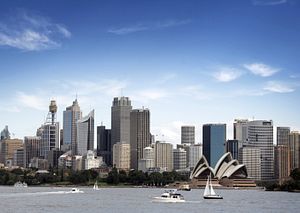Australia enters into its 24th straight year of economic expansion in 2015, with its citizens among the world’s richest. But with the mining boom ending, the exchange rate diving, and joblessness increasing, commentators have begun to utter the dreaded “R” word: recession.
“Australia has run out of luck,” claims market strategist Gerard Minack, who has assigned a 40 per cent probability of recession for the world’s 12th-biggest economy in 2015.
“Under almost any scenario the outlook is for a lower Australian dollar, lower interest rates and underperforming equities,” Minack told ABC News.
“If there is a recession expect sharp outright losses in equities, notably banks, and significant falls in house prices.”
The former Morgan Stanley global strategist has pointed to weak domestic demand, falling mining investment, a declining manufacturing sector and shrinking bureaucracy as all adding up to a gloomier picture.
Minack’s forecast was technically proved accurate last December, when gross domestic product (GDP) data for the September quarter 2014 showed the nation had posted two straight quarters of negative income growth.
Real net national disposable income, a measure of what Australian consumers, businesses and governments receive in exchange for their goods and services, contracted by 0.3 percent in the quarter after falling by 0.2 percent in the June quarter. This reflected slumping commodity prices, with sharp falls in the prices of key exports such as iron ore and coal pushing down the terms of trade, a measure of the value of exports compared to imports, which fell by 3.5 percent and nearly 9 percent year-on-year.
According to ANZ economist Felicity Emmett, nominal GDP contracted by 0.1 percent in the quarter, a “disappointing result” for the economy.
“Soft income growth will weigh on profits, wages and public revenues, and flow through to softer consumer spending, business investment and public demand,” Emmett said.

































